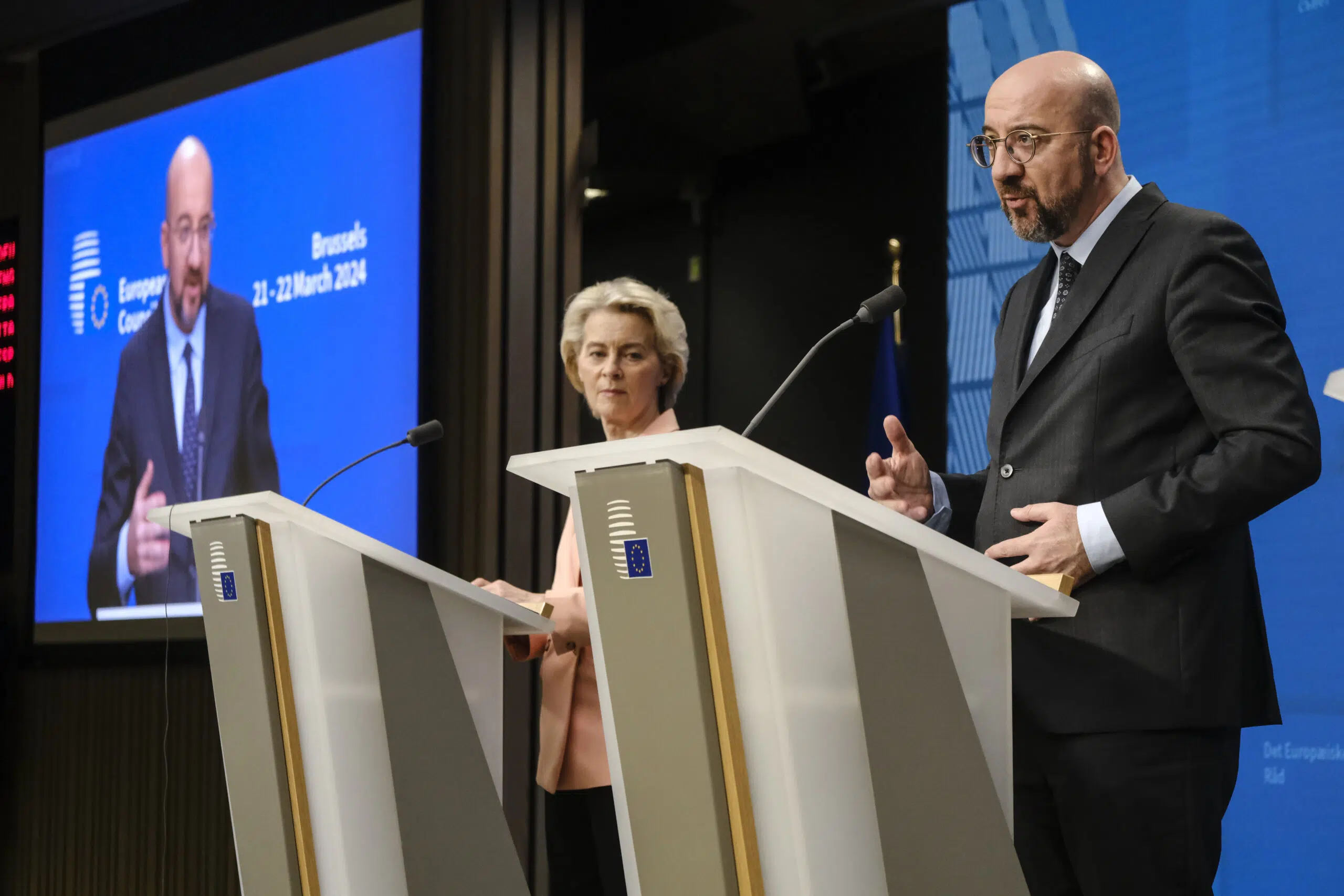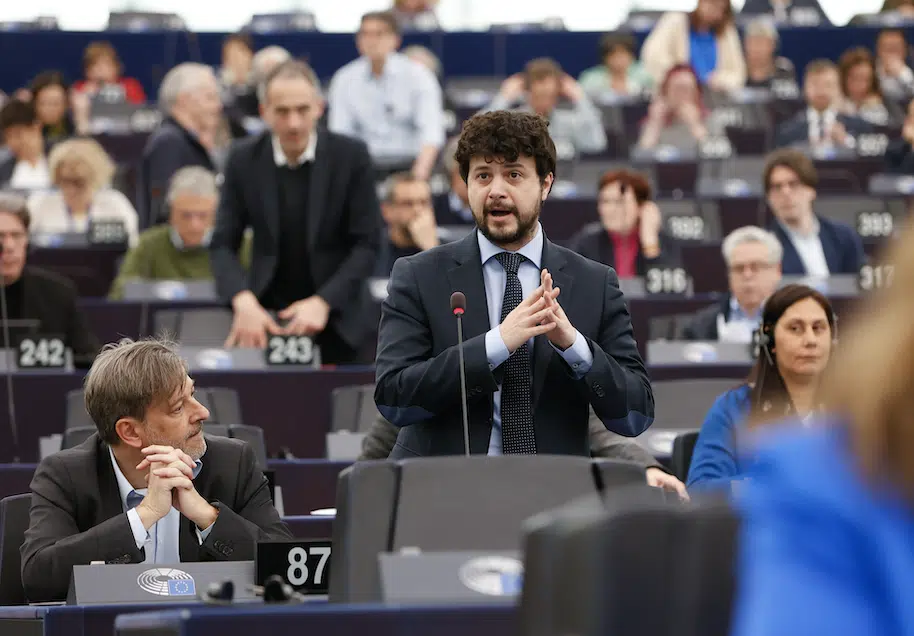Brussels – EU heads of state and government find a common language on the “humanitarian tragedy” in Gaza. That’s already news because it hasn’t happened since October 26, not even three weeks after the conflict between Israel and Hamas began. Five months later, that call for “humanitarian corridors or pauses” has morphed into a call for “an immediate humanitarian pause leading to a sustainable ceasefire.”
Unanimity has a cost, and with the crisis in the Middle East, it is evident that it is necessary to lower the bets. “I know it took time to find unity, but this evening, we are showing that we can play a positive role,” European Council President Charles Michel said at a press conference on the sidelines of the proceedings. But when the United States is about to propose a resolution to the U.N. Security Council in which, for the first time, it calls for a stop to hostilities in the Strip, the final declaration of the 27 already seems outdated. So much for the EU High Representative Josep Borrell and UN Secretary-General Antonio Guterres who Thursday morning used far harsher tones on Israel.
Belgian Prime Minister Alexander De Croo had already denounced this on his arrival at the summit: “The EU must lead, not follow,” he said, referring to Washington’s “good example,” that, after vetoing several times resolutions calling for laying down arms, tomorrow, for the first time, will not put the release of Israeli hostages in the hands of Hamas ahead of the call for an end to the bombing of Palestinian civilians. De Croo himself, on the sidelines of the Council, admitted that “the fact that the United States is adopting this position has played its part.”
In the chapter dedicated to the Middle East of the traditional 27-member declaration closing the European summit, the EU “urges” the Israeli government not to engage in a ground operation in Rafah, “calls” for ensuring the provision of humanitarian assistance, and “stresses” the importance of respecting and implementing the interim measures required by the International Court of Justice to prevent genocide in Gaza. It condemns “in the strongest possible terms” of the atrocities perpetrated by Hamas on Oct. 7 and of the violence committed by extremist Israeli settlers in the West Bank; but not of the Israeli bombings that have claimed more than 30,000 lives, most of them women and children, nor of the obstacles to the entry of humanitarian aid that are bringing 2 million people to the brink of famine.

EU heads of state and government expressed “deep concern about the catastrophic humanitarian situation in Gaza and its disproportionate effect on civilians, particularly children, as well as the imminent risk of famine.” Compared to the latest draft of the European Council conclusions, they dared to add, “Caused by the insufficient entry of aid into Gaza.”
Michel insisted that “everything must be done to convince, to make sure that there is a real possibility of humanitarian access.” He reiterated the unity of the 27 Member States in supporting the “essential role” played by the UN Palestinian Refugee Agency (UNRWA) in the region. A unity that – again – will have to be confirmed not only in words by the EU countries that still have not released funds to the agency after Israel’s accusations of complicity with Hamas against a dozen UNRWA employees. This includes Italy and Germany.
English version by the Translation Service of Withub








